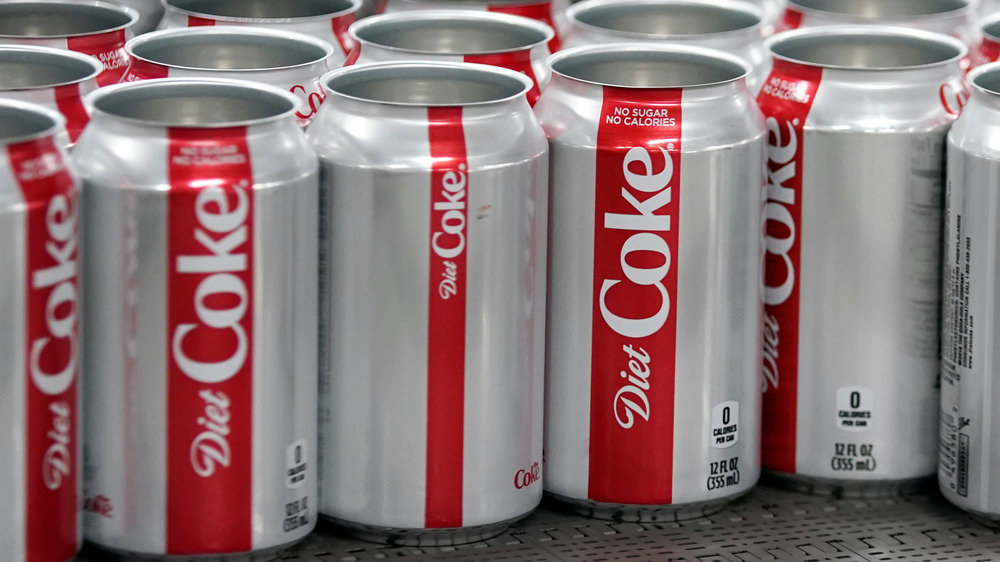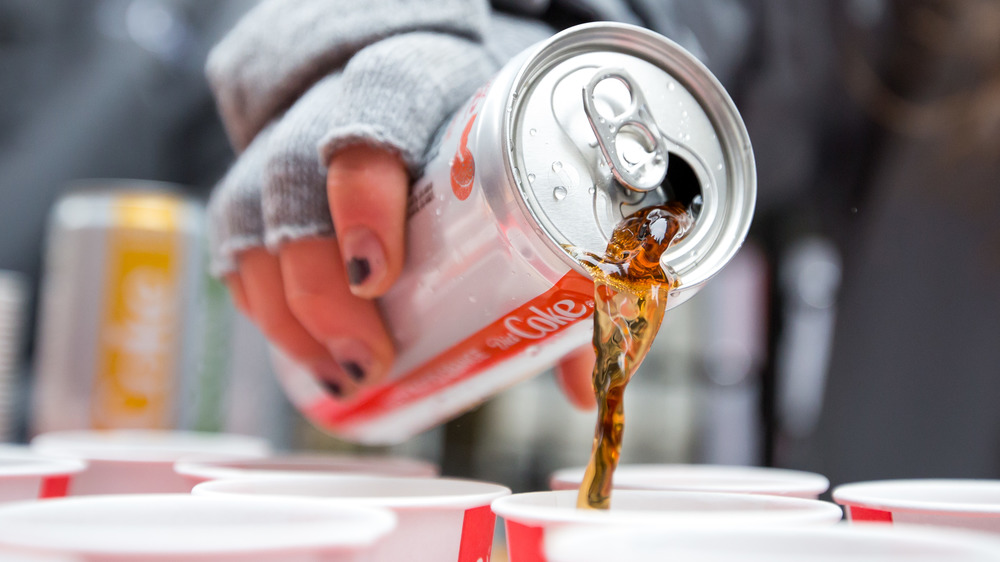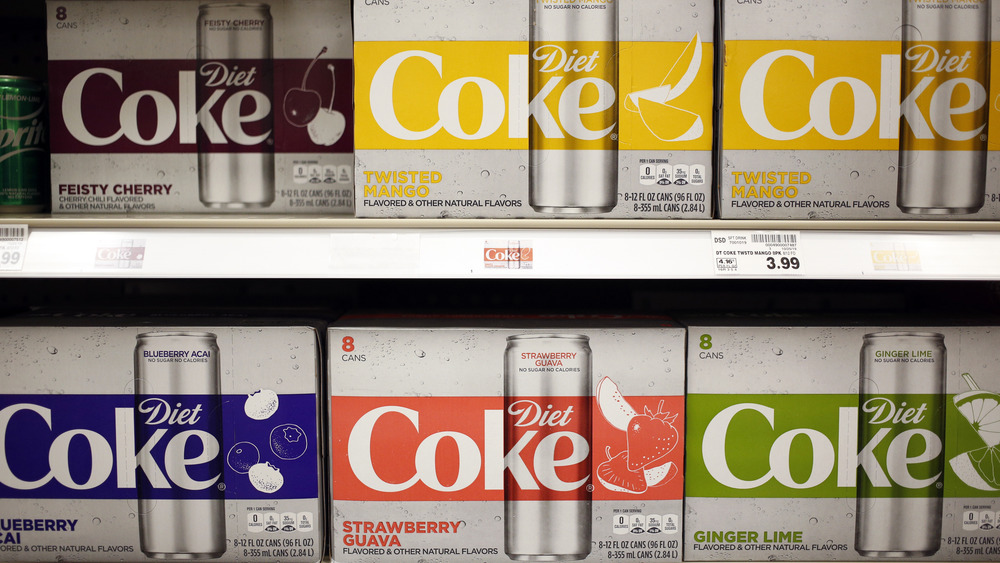The Reason Diet Coke Increases Your Craving For Calories
Diet Coke has long been considered hand-in-hand with, well, diet culture. At a whopping zero calories per can and with its crisp, sweet-tooth-squashing flavor, many dieters have found solace in replacing their full sugar sodas with this aspartame-based (per the Diet Coke website) option instead.
Over the last few decades, Diet Coke has quickly become symbolic within the fashion world. The famous silver can has found itself into the hand of many well-known models, forever associating the brand with the idea that if you drink Diet Coke, then you'll be fit like a model, too (via The Guardian). And while many people on a weight loss journey of their own find comfort — and convenience — in the minuscule calorie count of a can of Diet Coke, research has surprisingly revealed that it may not be such a helpful aid after all.
A can of Coca-Cola Classic is 140 calories — that's the same as two hard-boiled eggs, or a small bowl of vanilla ice cream. For anyone focusing on their weight, it might seem like an obvious swap — why wouldn't you opt for the calorie-free can of Diet Coke, and happily enjoy an extra snack in your day while you're at it? It seems too good to be true, and that just may be the case.
You may end up eating back the calories you're cutting by swapping to Diet Coke
A few new studies show evidence of the complete opposite: Instead of saving on calories, a serving of Diet Coke may just lead drinkers to eat more later on, thanks to the artificial sweeteners that take the place of the real sugar you'd find in a regular can of Coke.
Research out of University of Sydney (posted by the American Association for the Advancement of Science) focused on how consuming sucralose for five or more days affected the appetite of fruit flies. Ultimately, they found that those fruit flies "consumed 30 percent more calories than when they were then given naturally sweetened food."
The scientists furthered their research on mice and discovered that "when sweetness versus energy is out of balance for a period of time, the brain recalibrates and increases total calories consumed" — AKA, you'll likely end up reaching for a second bowl of ice cream, since your body tastes the artificial sweetener and expects to receive a certain amount of energy. However, since foods and drinks like Diet Coke contain zero calories, there's no energy there to give, leaving your body — and brain — craving more.
There's still more research to be done on how artificial sweeteners affect humans
While the studies have shown that there's a direct link between sucralose and increased appetite in animals, the extent of the effects on humans are still fuzzy. Scientific American dived a bit deeper into the research out of Sydney, and concluded that it's still too early to say the findings fully apply to people. While there's certainly some evidence backing it up, scientists can't definitively say that artificial sweeteners will drive diet soda drinkers to consume more calories at the end of the day.
However, a 2011-2016 study out of George Washington University discovered that out of a surveyed group of kids and teens, those who drank diet sodas or regular sodas in a 24-hour period ate "a total of 196, 312, and 450 more calories respectively compared to those who only drank water" (via Insider).
While there's not enough to call the case either way, one thing is for certain — nothing will ever quite top a McDonald's fountain Diet Coke, whether it makes you grab an extra Big Mac meal or not.


